The Catalyst Killing - [20]
He shook his head sadly and emptied the rest of the glass of cognac.
‘In retrospect, I have realized that the situation is in part fate and in part our own fault. Both Margrete and I came from conservative families with strong traditions. I followed in my father’s footsteps, serving as an officer in the army in my younger years, then going on to become a successful bank manager. I had great hopes for a large family and a son to carry on the family name. But Marie’s birth was difficult, and as a result, my wife could have no more children. So all our hopes and aspirations rested on Marie. It was perhaps too much for her. I have often thought about it in recent years.’
Martin Morgenstierne stood up and poured himself another glass of cognac. He was on a roll now, and carried on without any prompts from me.
‘She was the dream daughter throughout most of her childhood. She did everything we asked her to, was kind and polite to everyone, and did well at school. But then suddenly everything changed when she turned eighteen and went to university. I cannot forgive him for leading her astray.’
‘By him, you mean Falko Reinhardt?’
He nodded, and an almost aggressive edge sparked in his eye.
‘Of course. Though we had noticed some changes before he came on the scene. She was much harder on both me and her mother, and the atmosphere around the table was often not particularly pleasant in the months before she graduated from high school. But it was when she started university and met him that it became unbearable for me to eat supper in my own home. I am fully aware that he is in all likelihood dead, but I have nothing positive to say about him, all the same.’
I asked whether he had ever met Falko Reinhardt in person. He nodded, almost reluctantly.
‘We met a couple of times when they first fell in love, and then I met him again at my daughter’s request just after they got engaged. He made an admirable attempt to embrace me and even tried to call me father-in-law, instead of his usual sarcastic ‘Super Pater’, the last time we met. He was intelligent enough not to mention any of the anti-establishment theories he spouted so readily in other social contexts. But we were of course diametrically opposed in terms of politics and status, so any real contact was impossible. I prayed to God on several occasions that my daughter might break off the engagement and had debated vigorously with myself as to whether I would go to the wedding or not. And in the end, I did not have to make that choice.’
He sighed, took a sip from his glass, and then carried on.
‘For me, it was a huge relief when my daughter’s fiancé disappeared, and I had no desire whatsoever for him to come back. It is understandable that the detective inspector leading the investigation into Reinhardt’s disappearance had to ask me where I was on the night that he disappeared. Fortunately, it could be confirmed that I was at an anniversary dinner in Oslo until well past midnight, so it would have been impossible for me to get to my cabin in Vestre Slidre.’
I could not gauge the extent to which this positive reference to Detective Inspector Danielsen was a dig at me or not. I could imagine that the two of them had quickly become chums, but something else that the bank manager said immediately caught my attention.
‘So the cabin in Valdres is yours?’
He nodded.
‘Paradoxically, yes. I inherited it from my father. I had spent family holidays there since I was a boy, a tradition that Marie had also grown up with and enjoyed. But the cabin had not been used since Margrete died. I could not face going there alone, and Marie knew this. Which is why she took the chance of inviting her friends there without even asking me. I was completely unaware that the group were in my property and at first thought it was a misunderstanding when the police called to say that a person had been reported missing from my cabin.’
‘So your daughter had her own key to the cabin, and you still have your own key?’
‘Yes, I do still have it, but don’t use it any more. I have not been to the cabin since all this happened and definitely have no intention of going there alone now. The police are welcome to borrow the key, if that would be of any help to the investigation.’
I accepted this offer and thanked him, popping the key he gave me into my pocket. It could well be useful to have the key to the cabin where Falko Reinhardt had disappeared.
But right now, I was more interested in the deceased’s flat. According to her father, she had lived in a rented two-bedroom flat in Kjelsås for the past three years. He had only been there once and was never offered a key. He could therefore only advise that I contact the owner or caretaker of the building if I wanted to get in. As far as inheritance was concerned, he had no idea whether his daughter had a will or not, or if so, where it might be. If she had not left a will, he would, as her closest living relative, get back all the money she had received following her mother’s death. Which was certainly not what he had hoped for, he added hastily.
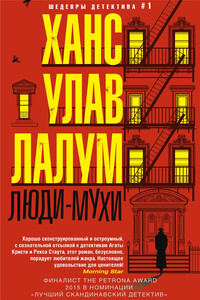
Убит бывший лидер норвежского Сопротивления и бывший член кабинета министров Харальд Олесен. Его тело обнаружено в запертой квартире, следов взлома нет, орудие убийства отсутствует. На звук выстрела к двери Олесена сбежались все соседи, но никого не увидели. Инспектор уголовного розыска Колбьёрн Кристиансен считает, что убийство, скорее всего, совершил кто-то из них. Более того, он полагает, что их показания лживы.
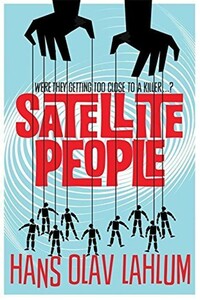
A gripping, evocative, and ingenious mystery which pays homage to Agatha Christie, Satellite People is the second Norwegian mystery in Hans Olav Lahlum's series. Oslo, 1969: When a wealthy man collapses and dies during a dinner party, Norwegian Police Inspector Kolbjorn Kristiansen, known as K2, is left shaken. For the victim, Magdalon Schelderup, a multimillionaire businessman and former resistance fighter, had contacted him only the day before, fearing for his life. It soon becomes clear that every one of Schelderup's 10 dinner guests is a suspect in the case.
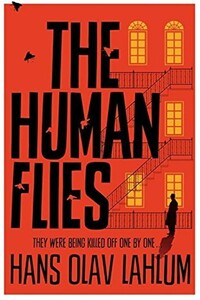
Oslo, 1968: ambitious young detective Inspector Kolbjorn Kristiansen is called to an apartment block, where a man has been found murdered. The victim, Harald Olesen, was a legendary hero of the Resistance during the Nazi occupation, and at first it is difficult to imagine who could have wanted him dead. But as Detective Inspector Kolbjorn Kristiansen (known as K2) begins to investigate, it seems clear that the murderer could only be one of Olesen's fellow tenants in the building. Soon, with the help of Patricia – a brilliant young woman confined to a wheelchair following a terrible accident – K2 will begin to untangle the web of lies surrounding Olesen's neighbors; each of whom, it seems, had their own reasons for wanting Olesen dead.
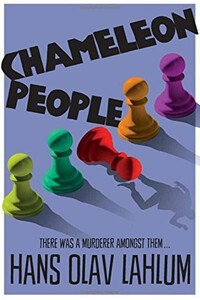
From the international bestselling author, Hans Olav Lahlum, comes Chameleon People, the fourth murder mystery in the K2 and Patricia series.1972. On a cold March morning the weekend peace is broken when a frantic young cyclist rings on Inspector Kolbjorn 'K2' Kristiansen's doorbell, desperate to speak to the detective.Compelled to help, K2 lets the boy inside, only to discover that he is being pursued by K2's colleagues in the Oslo police. A bloody knife is quickly found in the young man's pocket: a knife that matches the stab wounds of a politician murdered just a few streets away.The evidence seems clear-cut, and the arrest couldn't be easier.

Странные, зловещие и не укладывающиеся в голову события происходят в современном мегаполисе. У таинственного бизнесмена неизвестные жестоко убивают жену, а затем кто-то похищает ее тело из могилы. В его жизни появляется красивая и загадочная женщина, чтобы помочь ему выполнить безумную миссию. Кто-то заказывает в ювелирной мастерской клетку из чистого золота высотой в человеческий рост, весом в 158 килограммов и стоимостью шестьсот миллионов рублей. Древний Орден красного льва, основанный самым знаменитым чернокнижником Российской империи Яковом Брюсом, которого называли "русским Нострадамусом" и "личным колдуном" Петра Великого, и о котором сложено много невероятных легенд, ведет охоту на человека, который способен изменить этот мир раз и навсегда.
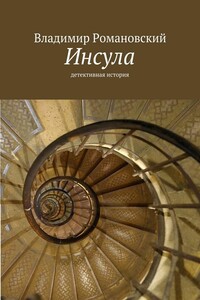
Детективная история, произошедшая в Санкт-Петербурге. Обычные люди в необычных обстоятельствах. Любовь, ненависть, жадность, драки и власть.
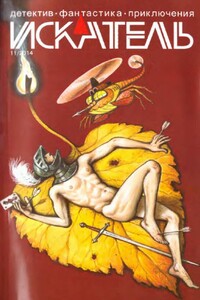
«ИСКАТЕЛЬ» — советский и российский литературный альманах. Издаётся с 1961 года. Публикует фантастические, приключенческие, детективные, военно-патриотические произведения, научно-популярные очерки и статьи. В 1961–1996 годах — литературное приложение к журналу «Вокруг света», с 1996 года — независимое издание.В 1961–1996 годах выходил шесть раз в год, в 1997–2002 годах — ежемесячно; с 2003 года выходит непериодически.Содержание:Анатолий Королев ПОЛИЦЕЙСКИЙ (повесть)Олег Быстров УКРАДИ МОЮ ЖИЗНЬ (окончание) (повесть)Владимир Лебедев ГОСТИ ИЗ НИОТКУДА.
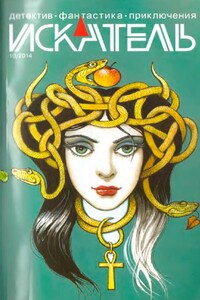
«ИСКАТЕЛЬ» — советский и российский литературный альманах. Издается с 1961 года. Публикует фантастические, приключенческие, детективные, военно-патриотические произведения, научно-популярные очерки и статьи. В 1961–1996 годах — литературное приложение к журналу «Вокруг света», с 1996 года — независимое издание.В 1961–1996 годах выходил шесть раз в год, в 1997–2002 годах — ежемесячно; с 2003 года выходит непериодически.Содержание:Олег Быстров УКРАДИ МОЮ ЖИЗНЬ (повесть);Петр Любестовский КЛЕТКА ДЛЯ НУТРИИ (повесть)
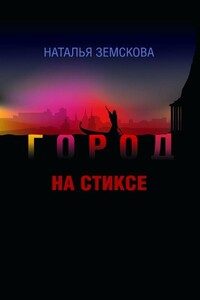
Наталья Земскова — журналист, театральный критик. В 2010 г. в издательстве «Астрель» (Санкт-Петербург) вышел её роман «Детородный возраст», который выдержал несколько переизданий. Остросюжетный роман «Город на Стиксе» — вторая книга писательницы. Молодая героиня, мечтает выйти замуж и уехать из забитого новостройками областного центра. Но вот у неё на глазах оживают тайны и легенды большого губернского города в центре России, судьбы талантливых людей, живущих рядом с нею. Роман «Город на Стиксе» — о выборе художника — провинция или столица? О том, чем рано или поздно приходится расплачиваться современному человеку, не верящему ни в Бога, ни в черта, а только в свой дар — за каждый неверный шаг.
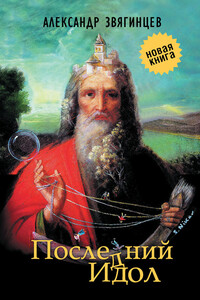
В сборник «Последний идол» вошли произведения Александра Звягинцева разных лет и разных жанров. Они объединены общей темой исторической памяти и личной ответственности человека в схватке со злом, которое порой предстает в самых неожиданных обличиях. Публикуются рассказы из циклов о делах следователей Багринцева и Северина, прокуроров Ольгина и Шип — уже известных читателям по сборнику Звягинцева «Кто-то из вас должен умереть!» (2012). Впервые увидит свет пьеса «Последний идол», а также цикл очерков писателя о событиях вокруг значительных фигур общественной и политической жизни России XIX–XX веков — от Петра Столыпина до Солженицына, от Александра Керенского до Льва Шейнина.